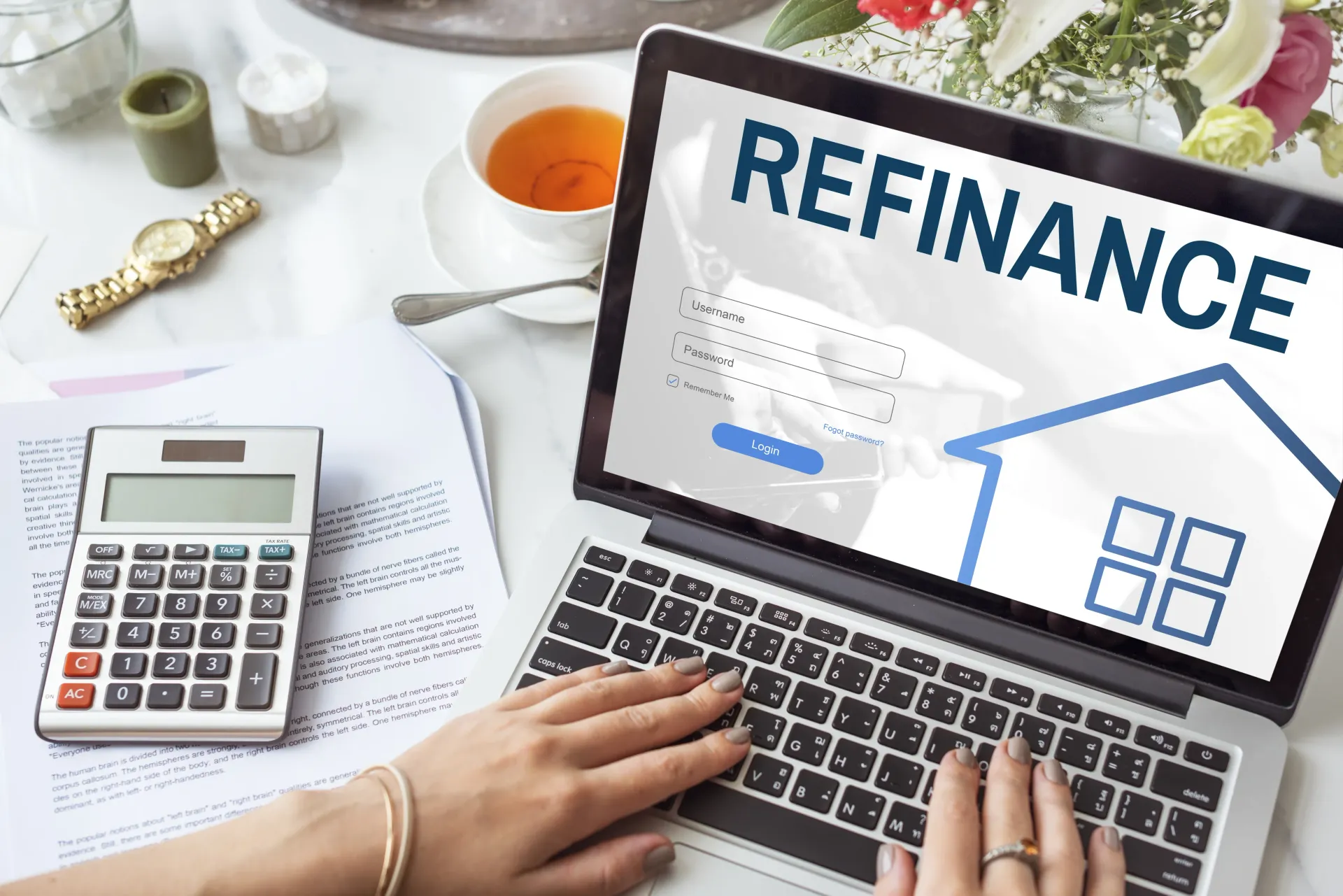Bridge Loans Explained: Short-Term Financing for Real Estate
Are you stuck between buying a new home and selling your current one? Or perhaps you've spotted a commercial property that's perfect for your business, but need quick cash to seal the deal? This is where bridge loan financing comes into play. These short-term real estate loans provide the funds you need today while you wait for longer-term financing tomorrow.
In this guide, we'll walk through everything you need to know about bridge loans – from how they work to when they make sense for your situation. Whether you're a homeowner, investor, or business owner, understanding this temporary property financing option could be the key to your next successful real estate move.

What Is a Bridge Loan in Real Estate?
A bridge loan is exactly what it sounds like – a financial bridge that helps you cross from one property to another. These short-term loans typically last 6-12 months and provide immediate funding while you arrange permanent financing or sell an existing property.
Think of bridge loans as your financial wingman during real estate transitions. They're designed to be quick but temporary solutions that help you "bridge the gap" between transactions.
Key Features of Bridge Loans
Bridge loans stand out from other financing options because of several unique features:
- Speed of funding: Most bridge loans close in 1-3 weeks, compared to months for traditional mortgages.
- Short repayment periods: Typically 6-12 months, though some lenders offer terms up to 3 years.
- Higher interest rates: Expect to pay 2-4% higher rates than conventional loans.
- Flexible qualification requirements: Lenders focus more on the property value than your personal finances.
- Interest-only payments: Many bridge loans only require interest payments during the term.
The big appeal? Speed and simplicity. When opportunity knocks in real estate, bridge financing lets you answer quickly.
How Bridge Loans Differ from Traditional Mortgages
Bridge loans and traditional mortgages serve different needs in your property journey:
Types of Bridge Loans for Property Purchases
Not all bridge loans are created equal. Different property types and situations call for different financing approaches.
Residential Bridge Financing Options
For homebuyers, residential bridge loans typically come in two forms:
- Standalone bridge loans: This separate loan covers the down payment on your new home while you sell your current one.
- Equity bridge loans: These tap into your current home's equity, essentially borrowing against the property you're planning to sell.
Most homeowners use these loans when they've found their dream home but haven't sold their current house yet. The funds help cover the down payment and closing costs on the new property.
Commercial Property Bridge Loans
Business owners face different challenges when acquiring property. Commercial bridge loans help companies:
- Purchase property before selling existing facilities
- Renovate properties before securing permanent financing
- Act quickly on prime locations in competitive markets
- Fund temporary business locations during construction
These loans typically range from $200,000 to millions of dollars, depending on the property value and business needs.
Retail Property Bridge Financing
Retail property investors often use bridge loans when:
- Converting properties between uses (like office to retail)
- Upgrading storefronts before leasing to tenants
- Purchasing properties in foreclosure or distress
- Consolidating multiple properties into one financing package
The fast financing timeline makes bridge loans ideal for retail investors who need to complete renovations quickly to start generating rental income.
Office Space Temporary Funding
Office property investors face unique challenges that bridge loans can address:
- Funding tenant improvements to attract new leases
- Covering costs during lease-up periods
- Financing quick purchases when prime locations become available
- Renovating outdated office spaces to command higher rents
With work patterns changing rapidly after the pandemic, bridge loans give office investors the flexibility to adapt spaces quickly to meet new demands.
When Does a Bridge Loan Make Sense?
Bridge loans aren't right for every situation. They shine in specific scenarios where timing and opportunity outweigh the higher costs.
Buying Before Selling Your Current Home
The most common use for bridge loans is when you've found your next home before selling your current one. This scenario creates several challenges:
- You need cash for a down payment but your equity is tied up in your current home
- You might face making two mortgage payments for a period
- You risk losing your dream home if you make an offer contingent on selling your current property
A bridge loan solves these problems by providing the down payment funds immediately, giving you time to sell your current home without rushing or accepting a lower offer.
Fast-Moving Real Estate Markets
In hot markets, houses sell within days of listing. If you want to buy in these areas, you need to move quickly with strong offers.
Bridge loans give you the competitive edge by allowing you to:
- Make non-contingent offers that sellers prefer
- Close quickly, sometimes in as little as 7-10 days
- Bid confidently, knowing your financing is secure
- Beat out buyers who are waiting on traditional mortgage approvals
This speed advantage often outweighs the higher costs of bridge financing in competitive markets.
Property Auction Purchases
Auctions require immediate payment, often within 24-48 hours of winning a bid. This timeline makes traditional financing impossible.
Bridge loans work well for auction purchases because:
- Funding can be arranged in advance
- The focus is on the property value rather than extensive personal paperwork
- Loans can close within days of auction completion
- You gain time to arrange permanent financing while securing the property
For real estate investors who hunt for auction bargains, bridge loans are often an essential tool in their financing toolkit.
The Application Process for Bridge Loans
Applying for a bridge loan differs from traditional mortgage applications in several key ways.
Required Documentation
While bridge loans require less paperwork than conventional mortgages, you'll still need to provide:
- Proof of ownership for your current property
- Recent property appraisal or valuation
- Exit strategy (how you'll repay the loan)
- Basic financial statements
- Property insurance information
- Purchase agreement for the new property (if applicable)
The focus is primarily on the properties involved rather than extensive personal financial documentation.
Property Valuation Requirements
Since bridge loans are secured by real estate, the property valuation is crucial:
- Most lenders require recent professional appraisals
- Some accept broker price opinions (BPOs) for faster processing
- Lenders typically loan up to 70-80% of the combined value of both properties
- Property condition significantly impacts loan terms
The better the property condition and location, the more favorable your loan terms will be.
Credit Score Considerations
While bridge lenders place less emphasis on credit scores than traditional mortgage lenders, they still matter:
- Scores above 680 typically qualify for the best rates
- Scores between 600-680 may still qualify with higher rates
- Some hard money bridge lenders approve scores as low as 550 with sufficient equity
- Recent foreclosures or bankruptcies may disqualify you with some lenders
Remember, the property serves as primary collateral, so stronger properties can sometimes overcome credit challenges.
Typical Timeline for Approval
One of the biggest advantages of bridge loans is their speed:
- Initial application and property information: 1-2 days
- Preliminary approval: 24-48 hours
- Property appraisal: 3-5 days
- Final approval: 1-2 days
- Closing and funding: 1-3 days
From start to finish, most bridge loans close within 2 weeks, compared to 30-45 days for conventional mortgages.
Costs Associated with Bridge Financing
The convenience of bridge loans comes at a price. Understanding these costs helps you determine if the benefits outweigh the expenses.
Interest Rates and How They Compare
Bridge loan interest rates typically range from 8-12%, significantly higher than conventional mortgage rates:
- Traditional 30-year mortgage: 5-7% (as of 2024)
- Home equity line of credit: 7-9%
- Bridge loan: 8-12%
- Hard money bridge loan: 10-15%
These higher rates reflect the increased risk and short-term nature of bridge financing.
Closing Costs and Fees
Beyond interest, bridge loans come with several fees:
- Origination fee: 1-3% of loan amount
- Appraisal fee: $400-700 per property
- Title search and insurance: $500-1,000
- Processing fees: $500-1,500
- Underwriting fees: $500-1,000
All told, closing costs typically range from 2-5% of the total loan amount.
Prepayment Penalties
Some bridge loans include prepayment penalties if you repay before a certain period:
- Common minimum interest periods: 3-6 months
- Typical penalty: 1-2% of original loan amount
- Some lenders charge the remaining interest that would have been paid
Before signing, always ask about prepayment terms, especially if you expect to repay quickly.
Hard Money Bridge Loans Explained
When traditional bridge lenders say no, hard money loans offer an alternative path to financing.
How Hard Money Loans Work
Hard money bridge loans differ from conventional bridge financing in several ways:
- Funded by private investors or small lending companies
- Almost exclusively based on property value (typically 60-70% loan-to-value)
- Minimal focus on borrower credentials
- Interest rates from 10-15%
- Faster closing (sometimes as quick as 3-5 days)
- Shorter terms (usually 6-12 months)
These loans serve borrowers with credit challenges, unusual properties, or extremely tight timelines.
Finding Reputable Hard Money Lenders
Not all hard money lenders operate with integrity. To find trustworthy partners:
- Check online reviews and ratings
- Ask for referrals from real estate attorneys or agents
- Look for lenders with industry association memberships
- Verify their lending history and experience
- Compare terms among multiple lenders
- Ask detailed questions about their fee structure
A good hard money lender clearly explains all costs upfront and doesn't add surprise fees at closing.
Risks and Considerations Before Taking a Bridge Loan
Bridge loans solve immediate problems but create potential future challenges if not carefully planned.
What Happens If Your Property Doesn't Sell?
The biggest risk with bridge financing is having your exit strategy fail:
- If your current home doesn't sell, you'll face two loan payments
- Bridge loans don't typically convert to permanent financing
- Extensions may be possible but come with additional fees
- Foreclosure is possible if you can't make payments
Before taking a bridge loan, create a backup plan such as renting your current property or arranging alternative financing if the sale falls through.
Alternatives to Bridge Financing
Before committing to a bridge loan, consider these alternatives:
- Home equity line of credit (HELOC): Lower rates but requires time to set up
- 401(k) loan: Quick funding but limits retirement growth
- Cash-out refinance: Lower rates but takes longer to process
- Personal loan: Unsecured but typically smaller loan amounts
- Seller financing: Rare but sometimes possible in buyer's markets
- Contingent offer: Safest option but least competitive in hot markets
Each alternative comes with its own pros and cons. The right choice depends on your financial situation, timeline, and risk tolerance.
Bridge Loan Success Stories and Case Studies
The best way to understand bridge loans is through real examples of how they've helped property buyers and investors.
Residential Success Examples
Case Study: The Johnson Family
The Johnsons found their perfect home—a rare property in their desired school district. With multiple offers expected, they couldn't make their purchase contingent on selling their current home.
Their solution? A $150,000 bridge loan based on their current home's equity. This allowed them to make a non-contingent offer that won the bidding war. Their existing home sold six weeks later, and they repaid the bridge loan from the proceeds.
Total cost: $4,500 in interest and fees—a small price to pay for securing their dream home in a competitive market.
Case Study: Retired Couple Downsizing
A retired couple found the perfect condo but needed to access their home equity quickly to make the purchase. A bridge loan provided $200,000 for three months while they prepared their house for sale and found the right buyer.
The result? They secured their ideal retirement home without rushing the sale of their family home, ultimately getting $25,000 more than they would have from a quick sale.
Commercial Bridge Loan Wins
Case Study: Restaurant Expansion
A successful restaurant owner spotted the perfect location for a second restaurant—a foreclosed property at 30% below market value. With only 21 days until auction closing, conventional financing wasn't possible.
A $425,000 commercial bridge loan allowed them to purchase the property immediately. After six months of renovations, they refinanced with a traditional commercial mortgage at a lower rate. The bridge loan cost an extra $15,000 in interest and fees but secured a property worth $200,000 more than they paid.
Case Study: Office Building Investor
An investor found an office building with 60% occupancy selling at a discount. The property needed minor updates to attract new tenants, but traditional lenders wouldn't finance a property with high vacancy.
A $1.2 million bridge loan funded both the purchase and renovations. Within four months, occupancy increased to 85%, allowing the investor to refinance with permanent financing. The bridge loan cost $42,000 in interest and fees but created over $300,000 in additional equity.
How to Find the Best Bridge Loan Lenders
Not all bridge loan providers offer the same terms or service quality. Finding the right lender makes a significant difference in your experience.
Questions to Ask Potential Lenders
Before choosing a bridge loan provider, ask these essential questions:
- What's your typical interest rate and fee structure?
- How quickly can you close on a loan of this size?
- What's your maximum loan-to-value ratio?
- Do you have a minimum interest period or prepayment penalties?
- What happens if I need to extend the loan term?
- What documentation do you require upfront?
- How many bridge loans have you funded in the past year?
- Can you provide references from recent customers?
The answers will help you compare lenders beyond just their advertised rates.
Red Flags to Watch Out For
Protect yourself by watching for these warning signs:
- Unusually low advertised rates that increase after application
- Excessive upfront fees before loan approval
- Pressure to sign documents without thorough review
- Vague or complicated fee structures
- No clear explanation of the total cost of the loan
- Poor online reviews or Better Business Bureau ratings
- Limited or no experience with your property type
- Unwillingness to put all terms in writing
Trust your instincts—if something feels wrong, it probably is.
Conclusion: Is a Bridge Loan Right for Your Real Estate Needs?
Bridge loans provide valuable solutions for specific real estate challenges, particularly when:
- You need to act quickly in competitive markets
- You've found your next property before selling your current one
- Traditional financing isn't available due to property condition or timeline
- You need funds for renovations before refinancing
However, they're not right for everyone. The higher costs make sense only when the benefits—such as securing a great property or avoiding two moves—outweigh the additional expenses.
Before deciding, calculate all costs carefully and ensure you have a solid exit strategy. A bridge loan should be a short path to a better financial position, not a road to greater financial stress. Contact us to Learn More
For many homebuyers and investors, bridge loan financing provides the perfect tool to seize opportunities that would otherwise be out of reach. Used wisely, these short-term real estate loans can help you build long-term wealth through smart property moves.










